Landscape
The Sierra Nevada de Santa Marta in northern Colombia is a world of contrasts. The snow-covered peak of Pico Simon Bolivar - the highest peak in the northern Andes - rises from untouched rainforest. Dense cloud forests proliferate on its slopes, wild rivers shoot down from its icy heights and slowly but surely become pleasant watercourses, which flow into the Caribbean Sea at lonely beaches, where the endangered green turtle lays its eggs. This area is particularly worthy of protection precisely because of its outstanding biodiversity and because it provides a home for so many rare animals.

"The Sierra Nevada feeds water to the entire surrounding area, in all four directions - that's why we call this area the heart of the world. It's a source of freshwater and fresh air for the whole world - and it's our responsibility to protect the landscape and keep it alive."
Cacao Genetics
Early settlers mistakenly thought that the Bunsi cacao variety, with its unusual white beans and very unusual-looking cacao pods, was afflicted with a disease, so they cut down the old cacao trees. Fortunately, some Bunsis survived in the shade of the wilderness and the Arhuacos have recently been able to start harvesting this precious cacao again. They call it "Businchari", which loosely translates to “sunrise” or “new beginning”.

Today, the Bunsi and the other native Bunschari cacao are threatened by the boom of modern hybrid cacao in South America, where a homogeneous selection of non-native, robust cacao hybrids is predominantly used to achieve high yields.
Cocoa production
This cacao grows from the coastal forest and lower highlands to an altitude of 800 metres. Sometimes it takes up to 10 hours on donkeys for the Arhuaco to bring their cacao from the depths of the forest to the nearest road.

There, state-of-the-art fermentation and drying facilities run by the experts at Cacao de Colombia await the still-wet cacao beans ("wet" means the beans are still encased in the pulp of the cacao fruit in which they are fermented). Cacao de Colombia traders buy the cacao beans from the Arhuaco and ferment them gently, closely monitoring the pH, Brix and temperature of the fermenting beans. The whole process looks very similar to the initial phases of wine production.
Tribal tradition:
"It is important to us to respect our traditions in cacao farming. We are not interested in modern cacao hybrids - it just doesn't fit into our vision of sustainable agriculture. We are interested in quality, not necessarily quantity, so we look for partners who support that. Our farming practices have to be in line with the spiritual guidance of the Mamo, our spiritual leaders. Everything we grow is organic, and we don't force nature to produce more than it would on its own."

The Arhuaco consider themselves "the elder brothers of the world" and believe wholeheartedly that it is their responsibility to nourish "the heart of the world" and thereby maintain the balance of our earth. The Arhuacos are descendants of the great Tayrona civilization, known for their goldsmith work and architecture, and as the namesake of the famous Tayrona National Park, located just next door.
Environmental protection
On the same land where coca (for cocaine) and marijuana fueled and financed the violence of Colombia's drug war not long ago, cacao is now the symbol of peace for the Arhuaco and their neighbours. In 2007, the Arhuaco built their first village on the coast, Katansama.
📍 Google Maps: https://goo.gl/maps/ypUi8TLMZtA8L1A57
"Our forests help us protect the 'heart of the world' and keep the earth in balance." Hernan Villafaña, Cocoa Leader of Arhuaco

Some of the actions being implemented locally with the help of Original Beans include:
- Research and mapping of aromatic cacao in the Arhuaco area
- Establish nurseries for these cacao and for native wood species
- Establish "cacao libraries" that function as a genetic database
- Establish a rainforest-friendly land use model and make it available to the public
- Train locals in fermentation and drying of cacao beans, organic farming, and pest management
- Support the preservation of pristine rainforest areas through conservation agreements
- Establish a demonstration farm for the high school in Bunkwimake, which is attended by 150 children

In 2019, for example, the following goals were achieved with the help of the Arhuaco Cacao Project:
|
Purchase of cocoa |
5 villages |
|
Improved standard of living for |
154 cacao farmers |
|
Organic farming of |
254 hectares of land |
|
Reforestation & active protection of |
7.700 trees |
|
Sequestration of |
503 tons of Co2 |

Thanks to Original Beans
All photos as well as the basic data and direct interview quotes with the Arhuaco were kindly provided by Jan Schubert of Original Beans. Original Beans is both a chocolate brand and now a major cocoa bean importer, and Jan travels South America on their behalf to build projects and develop long-term partnerships with smallholder farmers and local partners on the ground. We buy our cacao beans directly from Original Beans, who set the highest sustainability standards for their cacao that go far beyond organic certification.
You can order the cacao here.





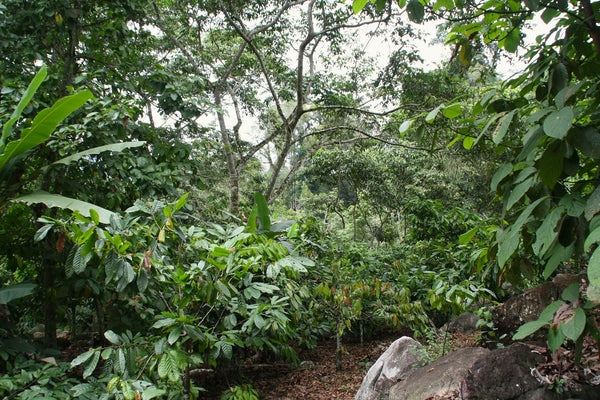



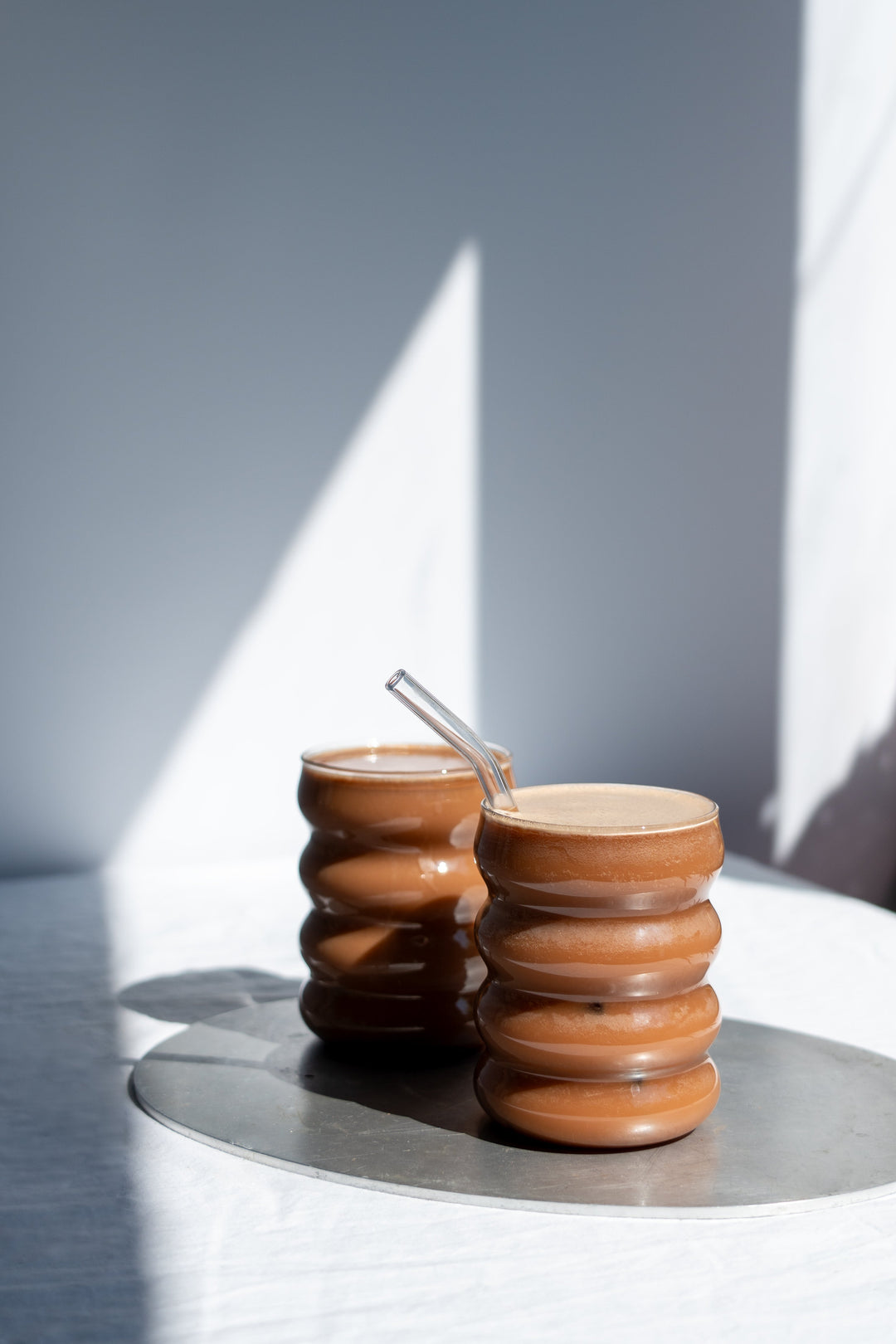
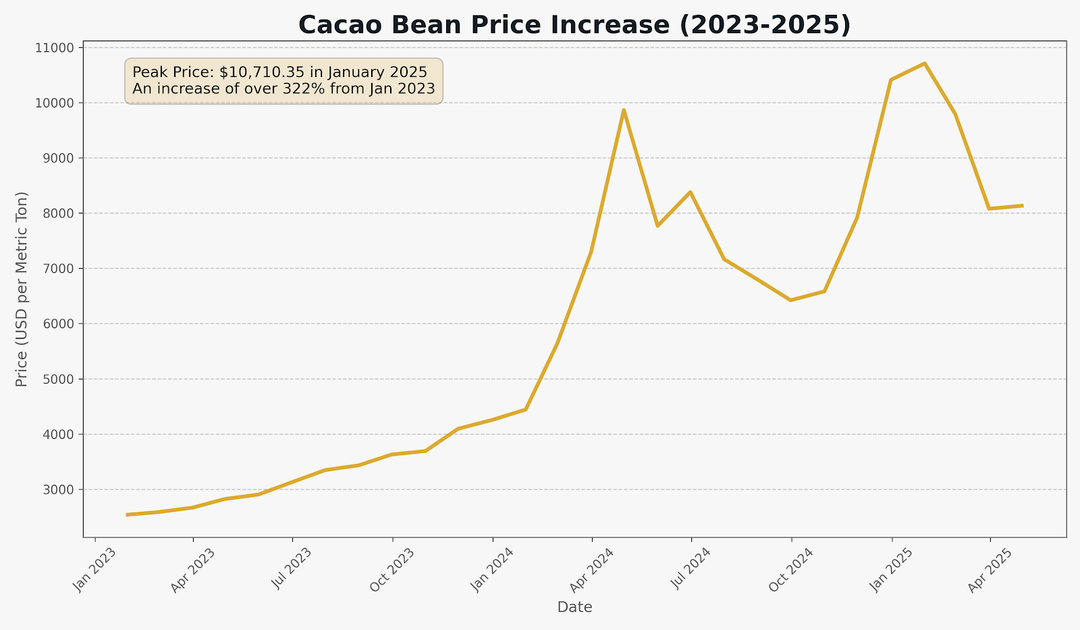
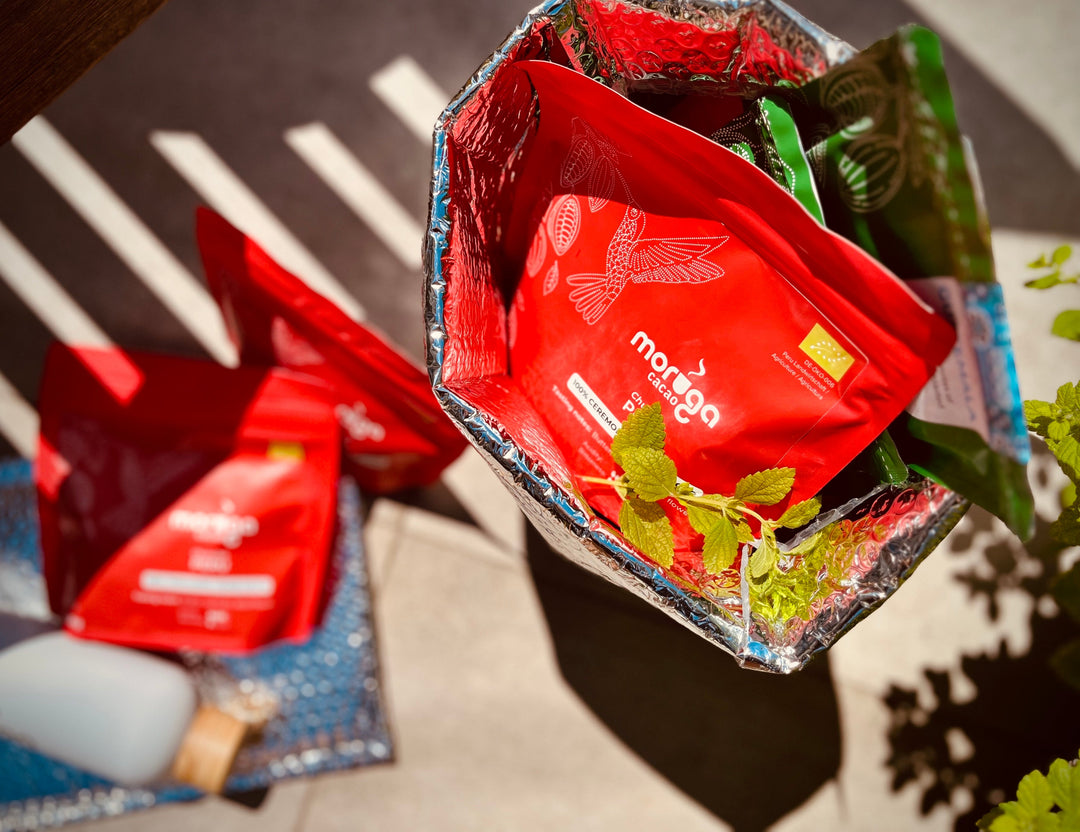

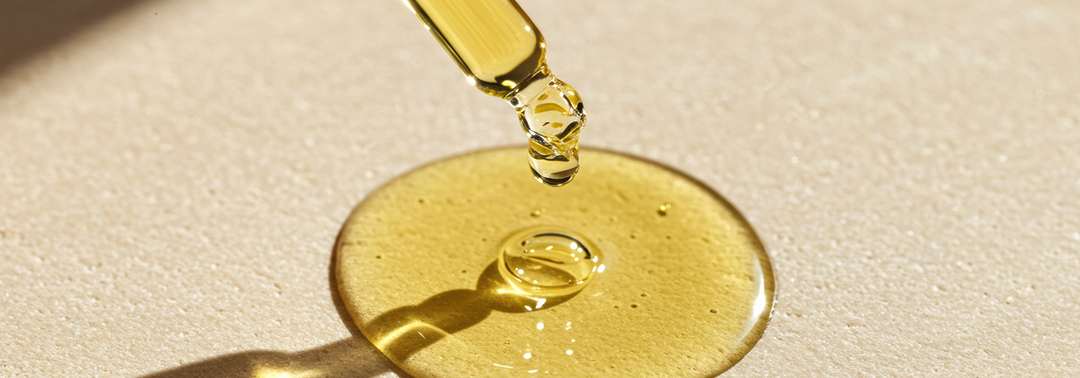
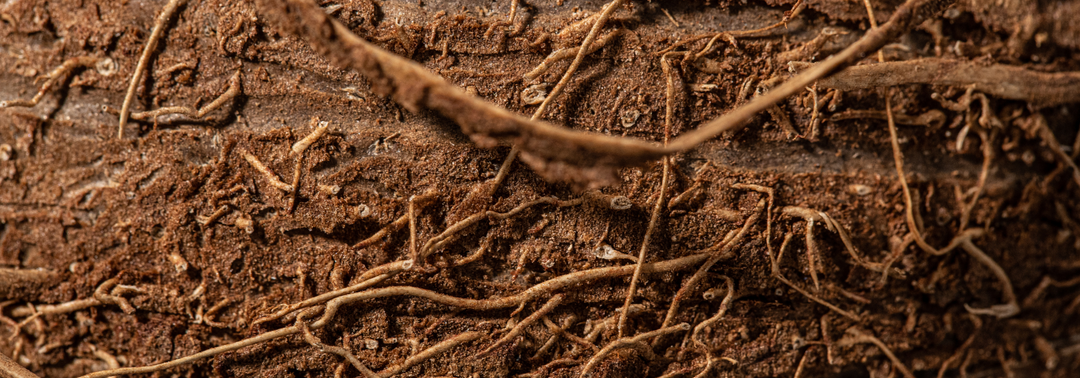
Hinterlassen Sie einen Kommentar